
Dresden is the capital city of the German state of Saxony and its second most populous city after Leipzig. It is the 12th most populous city of Germany, the fourth largest by area, and the third most populous city in the area of former East Germany, after Berlin and Leipzig. Dresden's urban area comprises the towns of Freital, Pirna, Radebeul, Meissen, Coswig, Radeberg and Heidenau and has around 790,000 inhabitants. The Dresden metropolitan area has approximately 1.34 million inhabitants.

The bombing of Dresden was a joint British and American aerial bombing attack on the city of Dresden, the capital of the German state of Saxony, during World War II. In four raids between 13 and 15 February 1945, 772 heavy bombers of the Royal Air Force (RAF) and 527 of the United States Army Air Forces (USAAF) dropped more than 3,900 tons of high-explosive bombs and incendiary devices on the city. The bombing and the resulting firestorm destroyed more than 1,600 acres (6.5 km2) of the city centre. Up to 25,000 people were killed. Three more USAAF air raids followed, two occurring on 2 March aimed at the city's railway marshalling yard and one smaller raid on 17 April aimed at industrial areas.

Slaughterhouse-Five, or, The Children's Crusade: A Duty-Dance with Death is a 1969 semi-autobiographic science fiction-infused anti-war novel by Kurt Vonnegut. It follows the life experiences of Billy Pilgrim, from his early years, to his time as an American soldier and chaplain's assistant during World War II, to the post-war years. Throughout the novel, Billy frequently travels back and forth through time. The protagonist deals with a temporal crisis as a result of his post-war psychological trauma. The text centers on Billy's capture by the German Army and his survival of the Allied firebombing of Dresden as a prisoner of war, an experience that Vonnegut endured as an American serviceman. The work has been called an example of "unmatched moral clarity" and "one of the most enduring anti-war novels of all time".
Jill Farren Phelps is an American television producer. She is known for her work with American soap operas, having served as executive producer of Santa Barbara, Another World, Guiding Light, One Life to Live, General Hospital, and The Young and the Restless.
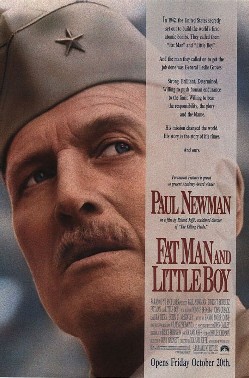
Fat Man and Little Boy is a 1989 American epic historical war drama film directed by Roland Joffé, who co-wrote the script with Bruce Robinson. The story follows the Manhattan Project, the secret Allied endeavor to develop the first nuclear weapons during World War II. The film is named after "Little Boy" and "Fat Man", the two bombs dropped on the Japanese cities of Hiroshima and Nagasaki, respectively.
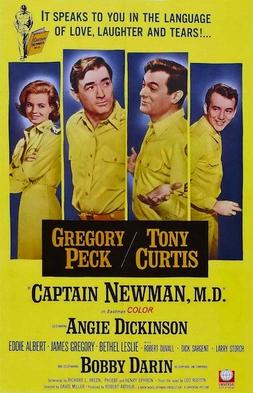
Captain Newman, M.D. is a 1963 American comedy drama film directed by David Miller and starring Gregory Peck, Tony Curtis, Angie Dickinson, Robert Duvall, Eddie Albert and Bobby Darin. Peck's Brentwood Production also co-produced the film.
The 31st Daytime Emmy Awards, commemorating excellence in American daytime programming from 2003, was held on May 21, 2004 at Radio City Music Hall in New York City, Vanessa Marcil hosted. Creative Arts Emmy Awards were presented on May 15, 2004. As of 2013, it is the last Daytime Emmy Awards ceremony to have aired on NBC. The nominees were announced on May 4, 2004.

Georg August Friedrich Hermann Schulz, better known as Heinrich George, was a German stage and film actor.

The Cranes Are Flying is a 1957 Soviet film about the Second World War. It depicts the cruelty of war and the damage done to the Soviet psyche as a result of war, which was known in the Soviet Union as the Great Patriotic War.
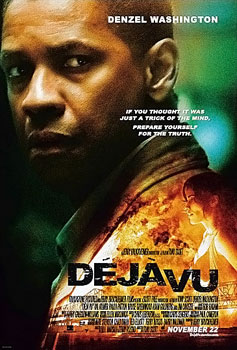
Déjà Vu is a 2006 American science fiction action thriller film directed by Tony Scott, written by Bill Marsilii and Terry Rossio, and produced by Jerry Bruckheimer. The film stars Denzel Washington, Paula Patton, Jim Caviezel, Val Kilmer, Adam Goldberg and Bruce Greenwood. It involves an ATF agent who travels back in time in an attempt to prevent a domestic terrorist attack that takes place in New Orleans and to save a woman with whom he falls in love.
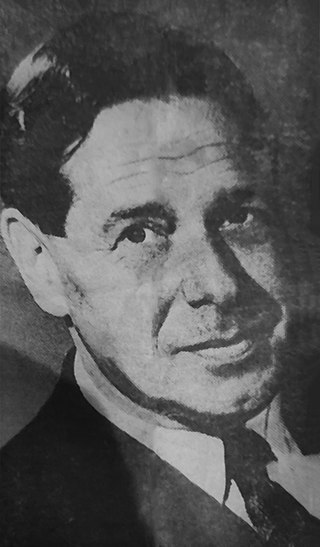
Arthur Leslie Benjamin was an Australian composer, pianist, conductor and teacher. He is best known as the composer of Jamaican Rumba (1938) and of the Storm Clouds Cantata, featured in both versions of the Alfred Hitchcock film The Man who Knew Too Much, in 1934 and 1956.
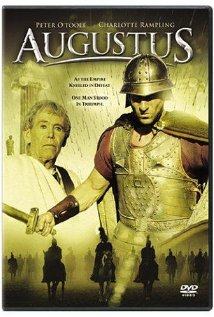
Imperium: Augustus is a 2003 joint British-Italian production, and part of the Imperium series. It tells of the life story of Octavian and how he became Augustus. Half the film takes place in the past and the other half takes place in the later life of Augustus.

Felicitas Woll is a German actress. She is perhaps best known for her roles in the television series Berlin, Berlin (2002–2005) and the television film Dresden (2006).

The Omega Code is a 1999 apocalyptic thriller film directed by Rob Marcarelli and starring Casper Van Dien, Michael York, Catherine Oxenberg and Michael Ironside. The premillennialist plot revolves around a plan by the Antichrist (York) to take over the world by using information hidden in the titular Bible code. The film was produced by the Trinity Broadcasting Network (TBN), whose televangelist head Paul Crouch, wrote a novelization of the film's screenplay.

Doctor Zhivago is a 2002 British television drama serial directed by Giacomo Campiotti and starring Hans Matheson, Keira Knightley and Sam Neill. The teleplay by Andrew Davies is based on the 1957 novel of the same title by Boris Pasternak. It is set primarily against the backdrop of the Russian Revolution of 1917 and the subsequent Russian Civil War of 1917–1923. At its core is Lara Guishar Antipova, a young woman from Moscow who has a profound effect on three men who become enamoured with her.

The Bells Go Down is a 1943 black-and-white wartime film made by Ealing Studios. The reference in the title is to the alarm bells in the fire station that "go down" when a call to respond is made. The film is an ensemble piece that covers the period between 27 August 1939 and 9 September 1940, when World War II began and London was subjected to aerial bombing, and is a tribute to the solidarity of not just those engaged in service, but among the British people as a whole.

The Little American is a 1917 American silent romantic war drama film directed by Cecil B. DeMille. The film stars Mary Pickford as an American woman who is in love with both a German soldier and a French soldier during World War I. A print of the film is housed at the UCLA Film and Television Archive and has been released on DVD.

Benjamin Sadler is a German actor.
Alexander Marshall Grant was a New Zealand ballet dancer, teacher, and company director. After moving to London as a young man, he became known as "the Royal Ballet's most remarkable actor-dancer in its golden period from the 1940s to the 1960s."
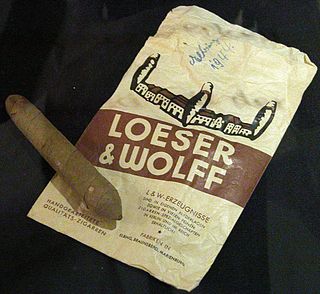
Tadellöser & Wolff is a 1975 two-part television film which was produced for the German public-service TV-broadcaster ZDF in Sepia. It is based on the 1971 book of the same name by Walter Kempowski. The first broadcast took place on 1 and 3 May 1975. The film was a great success in Germany,

















